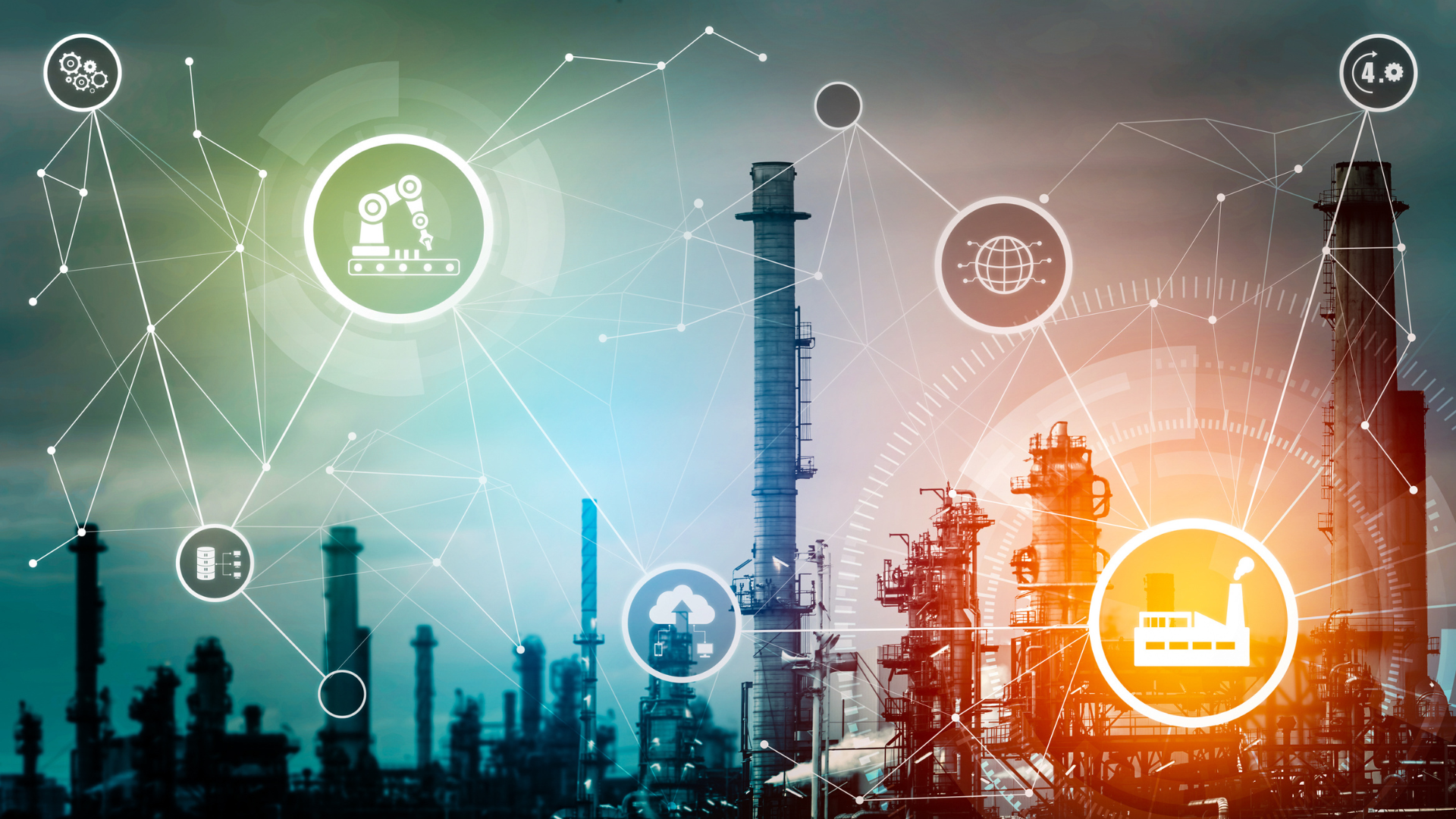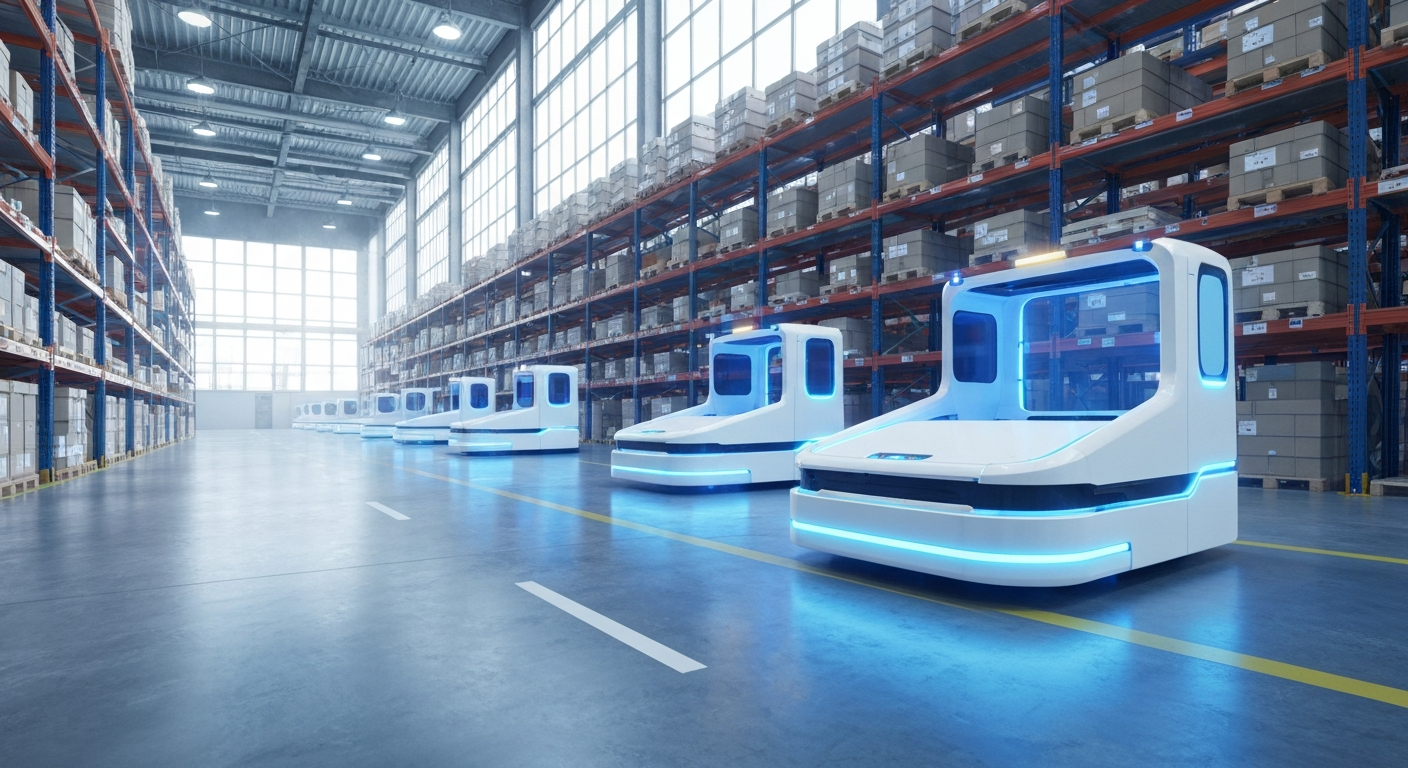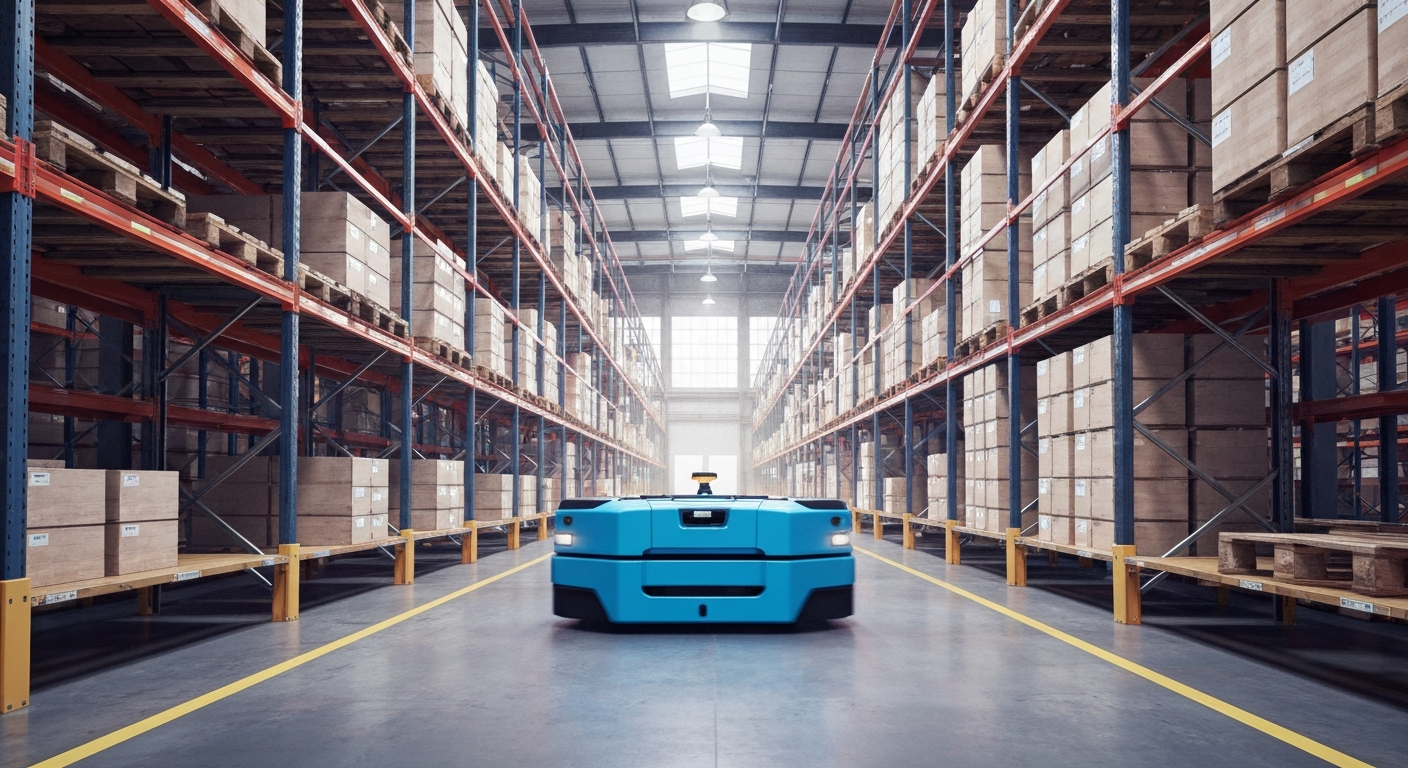Fourth Industrial Revolution Skills
Fourth Industrial Revolution Skills
Industry 4.0, also referred to as the Fourth Industrial Revolution, is a term that encompasses the integration of digital technologies into manufacturing processes and systems. This transformative concept has led to substantial changes across various industries, completely revolutionizing the way we work and interact with technology in today's world. The advent of Industry 4. 0 has brought about a wave of innovation and efficiency in manufacturing. By leveraging advanced technologies such as artificial intelligence, robotics, Internet of Things (IoT), and big data analytics, companies have been able to optimize their production processes like never before. These digital advancements have introduced a new level of automation and connectivity that enables machines to communicate with each other seamlessly, resulting in improved productivity and reduced operational costs. Moreover, Industry 4. 0 has created a paradigm shift in how businesses approach decision-making. With real-time data collection and analysis capabilities, companies can now make more informed decisions based on accurate insights. This data-driven approach enhances efficiency by identifying inefficiencies or bottlenecks in production lines promptly. Furthermore, the integration of digital technologies within manufacturing has paved the way for smart factories – highly interconnected systems where machines communicate with one another autonomously throughout the entire production process.
This level of connectivity facilitates predictive maintenance, enabling proactive identification and resolution of potential equipment failures before they occur. The impact of Industry 4. 0 extends beyond just manufacturing processes; it has also influenced how consumers interact with products through personalized experiences and customization options. With advancements like augmented reality (AR) and virtual reality (VR), customers can now engage with products virtually before making a purchase decision. In conclusion, Industry 4. 0 is an ongoing revolution that continues to shape our industries by integrating digital technologies into manufacturing processes and systems. It offers unprecedented levels of automation, connectivity, data-driven decision-making capabilities, predictive maintenance practices, as well as enhanced customer experiences through personalization options - all contributing to increased efficiency and productivity across various sectors.

What Are the 6 Main Applications of Industry 4.0 Today?
Today, there are six main applications of Industry 4.0 that are transforming industries across the globe. These applications include:
1. Internet of Things (IoT): Connecting physical devices and machines to collect and exchange data in real-time.
2. Big Data Analytics: Using advanced analytics techniques to analyze large volumes of data for valuable insights and decision-making.
3. Artificial Intelligence (AI) and Machine Learning: Utilizing algorithms and models to enable machines to learn from data, make predictions, and automate tasks.
4. Robotics and Automation: Deploying robots and automated systems to enhance productivity, efficiency, and precision in manufacturing processes.
5. Additive Manufacturing (3D Printing): Building objects layer by layer using digital designs, enabling customization, faster prototyping, and reduced waste.
6. Cybersecurity: Implementing measures to protect digital systems from unauthorized access or cyber threats.
What is Industry 4.0 Technology PDF?
If you wish to delve deeper into the intricacies of Industry 4. 0 technology, I recommend consulting a meticulously curated PDF document. This resource offers a comprehensive collection of information, shedding light on various facets and dimensions related to this cutting-edge industrial revolution. From the fundamental concepts to advanced applications and case studies, this document aims to equip readers with an in-depth understanding of Industry 4. 0 and its transformative impact on various sectors.
What does Industry 4.0 mean to Supply Chain?
The emergence of Industry 4. 0 has had a profound impact on supply chain management. This new era harnesses advanced technologies and represents a significant shift in how supply chains function. By facilitating seamless data exchange in real-time across different production stages within a network, Industry 4. 0 empowers businesses with improved coordination capabilities, leading to more efficient and effective supply chain operations. Industry 4. 0 brings about numerous benefits, amongst which is the enhanced collaboration and coordination between suppliers, manufacturers, distributors, and customers. By leveraging real-time data exchange, stakeholders can make informed decisions using up-to-date information. This eliminates the reliance on outdated or incomplete data, leading to improved operational efficiency and proactive decision-making across the entire supply chain. In addition, the advent of Industry 4. 0 has greatly enhanced businesses' ability to identify bottlenecks and inefficiencies within their supply chain processes. Through the close monitoring of real-time data at every stage of production, companies can swiftly identify areas in need of optimization or intervention. This proactive approach enables timely adjustments and continuous improvement efforts, leading to heightened overall efficiency and cost-effectiveness.
Moreover, Industry 4. 0 also provides increased visibility into the supply chain network, offering valuable insights for better decision-making and strategic planning. By implementing real-time data exchange mechanisms, stakeholders can gain valuable insights into all aspects of the production process. This includes everything from sourcing raw materials to delivering the final product. This enhanced transparency enables better planning and forecasting, while also mitigating risks related to uncertainties or disruptions in the supply chain. In essence, Industry 4. 0 is a major breakthrough in supply chain management as it utilizes real-time data exchange capabilities throughout different stages of production within a supply chain network. As a result of using AI, businesses experience improved coordination among suppliers, manufacturers, distributors, and customers. This leads to increased efficiency throughout the value chain, allowing companies to address challenges proactively in today's ever-changing marketplace for long-term success.
What Is Industry 4.0 in Simple Terms?
Industry 4. 0, in its essence, signifies the convergence of cutting-edge digital technologies with traditional industrial practices. This integration aims to revolutionize the manufacturing landscape by establishing smart factories that are interconnected through a vast network of devices. These devices possess the capability to autonomously exchange data, leading to enhanced efficiency, productivity, and overall performance within the industrial sector. As a result, Industry 4. 0 brings forth a new era of intelligent automation and collaboration between humans and machines, propelling industries towards unprecedented levels of innovation and competitiveness.
What are the Industry 4.0 Standards?
In the context of Industry 4. 0, it is important to note that standards can differ across countries and organizations due to varying technological advancements and regulatory frameworks. However, there are some widely recognized standards that have gained prominence in this domain. One such standard is OPC UA (Open Platform Communications Unified Architecture). This communication protocol provides a secure and reliable way for machines, devices, and systems to exchange data in an interoperable manner. By adopting OPC UA, organizations can ensure seamless integration of different components within their Industry 4. 0 ecosystem. Furthermore, industrial cybersecurity guidelines play a crucial role in safeguarding the integrity and confidentiality of data in Industry 4. 0 environments. The IEC-62443 series standards are commonly adopted to address cybersecurity concerns by providing a framework for implementing robust security measures across various layers of the industrial infrastructure. Another notable standard is RAMI 4. 0 (Reference Architecture Model for Industry 4. 0), which focuses on achieving interoperability among different elements of the Industry 4. 0 ecosystem. RAMI 4. 0 provides a comprehensive framework that enables organizations to design and implement interconnected systems effectively. By adhering to these standards, organizations can ensure compatibility between different technologies and systems within the Industry 4. 0 landscape while also addressing security challenges effectively. These standards collectively contribute towards building a reliable and secure foundation for the future of manufacturing and industrial processes in the digital age
What is Industry 4.0 in Simple Words?
Industry 4. 0 refers to a major shift happening in the manufacturing industry, where smart factories and highly automated production processes are taking center stage. This transformative concept seeks to revolutionize business operations by harnessing advanced technologies like artificial intelligence, robotics, Internet of Things (IoT), and cloud computing. This interconnected approach aims to enhance efficiency, productivity, and overall performance in the manufacturing sector. Companies are adopting Industry 4. 0 principles to boost productivity, reduce costs, improve quality control, and make manufacturing processes more flexible and responsive.
What Is an Example of the Industry 4.0 Revolution?
A prime illustration of the transformative revolution known as Industry 4. 0 is the integration of Internet of Things (IoT) devices within manufacturing plants. These state-of-the-art devices play a pivotal role in collecting real-time data from various machines and equipment. By harnessing this data, manufacturers can optimize overall performance, enhance operational efficiency, and gain valuable insights to predict maintenance needs well in advance. This cutting-edge utilization of IoT technology not only streamlines processes but also empowers businesses to proactively address potential issues, thereby ensuring seamless operations and reducing costly downtime.
What is Industry 5.0 PDF?
It's worth noting that there is no specific "industry 5.0" term or concept widely recognized in the same way as Industry 4.0. However, McKinsey is a well-known consulting firm that has published reports on Industry 4.0, providing valuable insights into its implementation and impact on various industries.
If you are looking for more information on Industry 4.0 or want to explore specific topics related to it such as presentations or PDFs explaining its concepts in detail, you can search online for resources like whitepapers or research papers from reputable sources or consult industry experts who specialize in this area.
Which are Industry 4.0 Technologies?
The fourth industrial revolution has four main impacts on industries:
1. Increased Efficiency: Industry 4.0 technologies enable automation and optimization of processes, leading to higher productivity levels.
2. Enhanced Connectivity: The integration of digital technologies allows for seamless communication between machines, systems, and humans.
3. Data-driven Decision Making: With advanced analytics tools, businesses can gather real-time data from various sources to make informed decisions.
4. Customization and Personalization: Industry 4.0 enables mass customization by leveraging digital technologies to meet individual customer needs more effectively.
What Are the 4 Types of Industrial Revolutions?
There have been four types of industrial revolutions throughout history:
1. First Industrial Revolution: The Industrial Revolution occurred in the late 18th century and brought about significant changes in production methods. Mechanization, powered by water and steam engines, played a crucial role in this transformation. These advancements had a profound impact on various industries and paved the way for modern industrialization. During the Industrial Revolution, water power and steam engines revolutionized the manufacturing industry. These energy sources enabled mass production and significantly increased productivity. This groundbreaking development not only transformed the production of goods but also had far-reaching impacts on society, economy, and labor dynamics. The Industrial Revolution laid the foundation for further advancements that continue to shape our modern world.
2.Second Industrial Revolution: The late 19th century marked a crucial period known as the second industrial revolution. This era saw remarkable advancements in electricity, mass production techniques, and transportation infrastructure. The introduction of electricity revolutionized industries by facilitating the use of new technologies and powering factories. Mass production techniques, such as assembly lines and interchangeable parts, revolutionized efficiency and productivity. Additionally, the development of transport infrastructure, particularly railways, connected distant regions and drove economic growth. These advancements not only facilitated industrial progress but also shaped our modern society.
3.Third Industrial Revolution: The Digital Revolution, also known as the Information Age, started in the mid-20th century and brought about significant technological advancements. These include computers, telecommunications networks, and automation systems. This revolution has transformed our lives by making information more accessible and facilitating efficient communication. It has also had a profound impact on various sectors such as entertainment, business operations, and scientific research. The advent of connectivity has led to remarkable opportunities across numerous industries, enabling unprecedented levels of interconnection and innovation.
4. The Current Revolution: The Fourth Industrial Revolution, also known as Industry 4. 0, is a major transformation in the industrial sector. It involves the integration of advanced digital technologies like AI, IoT, robotics, and additive manufacturing into traditional industrial processes. This shift towards digitalization aims to improve productivity, efficiency, and overall performance in the industry. AI enables machines to mimic human intelligence and perform complex tasks accurately. IoT connects devices and systems, facilitating seamless data exchange and real-time monitoring. Robotics brings automation to a new level, allowing intelligent machines to efficiently handle repetitive tasks in dynamic environments. Additive manufacturing or 3D printing revolutionizes production processes, enabling rapid prototyping and on-demand customization. The integration of technologies like AI, IoT, robotics, and additive manufacturing brings numerous benefits to industries. It improves operational efficiency and opens up opportunities for innovation. By utilizing data-driven insights from AI algorithms and optimizing supply chains through IoT-enabled systems, businesses can make more informed decisions and gain a competitive edge in the global marketplace. Industry 4. 0 represents a transformative era where digital technologies revolutionize industrial processes. By embracing advancements like AI, organizations can experience various benefits. These include increased productivity, streamlined operations, and the ability to quickly adapt to ever-changing market dynamics.
What is Industry 4.0 Researchgate?
Industry 4. 0, also referred to as the Fourth Industrial Revolution, is a term that encompasses the integration of digital technologies into manufacturing processes and industrial systems. This revolution brings together various cutting-edge technologies such as artificial intelligence, robotics, internet of things (IoT), big data analytics, and cloud computing. These advancements have the potential to transform traditional industries by optimizing production processes, enhancing efficiency, and enabling greater customization. In addition to Industry 4. 0 technology, there are online platforms like ResearchGate that play a crucial role in facilitating academic collaboration and knowledge sharing among researchers. ResearchGate serves as an innovative hub where scholars can connect with one another, share their scientific papers and publications, access research findings from diverse fields of study, and engage in meaningful discussions. By leveraging these digital platforms like ResearchGate, researchers can easily disseminate their work to a wider audience while also gaining valuable insights from other experts in their respective fields. Such platforms are instrumental in fostering interdisciplinary collaborations and accelerating the pace of scientific discovery. Overall, Industry 4. 0 technologies along with online platforms like ResearchGate are revolutionizing the way industries operate and how knowledge is disseminated within the academic community. With continuous advancements in these areas, we can expect even greater strides towards efficiency, innovation, and collaboration across various sectors of society.
What is Industry 4.0 PDF?
In order to gain a more comprehensive understanding of the intricacies of Industry 4. 0, individuals can explore an array of valuable resources available in PDF format on platforms such as ResearchGate. These PDF files often encompass a wide range of scholarly materials, including research papers, articles, and reports that delve deep into various facets and dimensions of the Industry 4. 0 phenomenon. By immersing oneself in these informative documents, one can acquire profound insights into the principles, technologies, and implications that underpin this transformative industrial paradigm.
How Will Industry 4.0 Affect People?
The advent of Industry 4. 0 has brought about a substantial impact on individuals across various sectors. As automation and cutting-edge technologies continue to revolutionize industries, the traditional landscape of job roles is experiencing a notable transformation. This paradigm shift entails both challenges and opportunities for the workforce. With routine tasks being increasingly automated, certain job positions may indeed become obsolete. However, it is vital to note that this technological revolution also opens up new avenues for growth and development. As industries embrace automation, there arises a demand for individuals with specialized skills in managing and implementing these advanced technologies. Professionals who possess expertise in areas such as artificial intelligence, machine learning, robotics, and data analytics are expected to be highly sought after in this new era of Industry 4. 0. These emerging job opportunities require individuals who can navigate the complexities of these sophisticated systems while harnessing their potential to drive innovation and efficiency. In light of this transformative landscape, it becomes crucial for individuals to adapt and upskill themselves accordingly. By acquiring knowledge in relevant fields related to Industry 4. 0 technologies, individuals can position themselves at the forefront of this digital revolution and seize the opportunities that arise from it. Ultimately, while Industry 4. 0 undoubtedly brings changes to job roles and skill requirements, it also paves the way for exciting prospects where individuals can utilize their talents in ways that were previously unimaginable. Embracing these advancements with a proactive mindset will enable professionals to thrive amidst this dynamic industrial revolution. How Industry 4.0 will change our society?
In terms of its effect on society, Industry 4.0 has the potential to revolutionize production processes, increase efficiency, reduce costs, and improve product quality. It can also lead to a shift towards more sustainable practices through resource optimization and waste reduction.
What is the Industry 4.0 Strategy?
The strategy behind Industry 4.0 involves embracing digital transformation across industries by adopting cutting-edge technologies to enhance productivity and competitiveness. This includes leveraging data-driven insights for decision-making processes, implementing smart manufacturing systems for agile production lines, and integrating supply chains through interconnected digital networks.
Overall, Industry 4.0 represents a transformative shift in how industries operate and interact with technology-driven advancements that have far-reaching implications for individuals, businesses, society at large.



